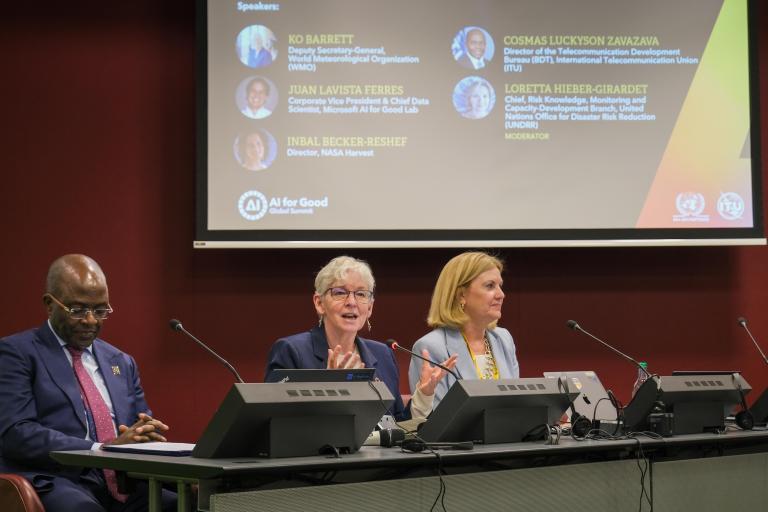- The AI For Good Global Summit in Geneva highlighted the pivotal role of AI in shaping future climate prediction and early warning systems.
- WMO, at the forefront of innovation, emphasized the importance of international data exchange for modern forecasting capabilities.
- Workshops and sessions explored diverse management aspects, from food security to anticipatory actions for natural disasters, with presentations available online.
- The “Early Warnings for All” initiative garnered significant attention, showcasing real-world applications of AI in national and global early warning systems.
- Collaborative projects like MedEWSa demonstrate efforts to enhance early warning systems through AI, aiming for more efficient first responder actions.
- WMO is committed to integrating AI into its technical operations, focusing on enhancing predictive analytics and automating data processing within the MHEWS framework.
Main AI News:
The AI For Good Global Summit in Geneva witnessed an electrifying atmosphere as attendees eagerly awaited insights into the latest advancements. Across various floors, exhibitions, and workshops, the summit delved into the critical role of AI in shaping future climate prediction and early warning systems.
“Being at the forefront of innovation, WMO plays a pivotal role in coordinating the exchange of international data, crucial for modern forecasting capabilities,” emphasized Ko Barrett, WMO Deputy Secretary-General. Nations worldwide adhere to WMO standards, continuously measuring weather conditions and sharing data globally. This collaborative effort enables the computation of global weather forecasts, disseminated back to contributing countries within hours.
Throughout the summit, the Geneva International Conference Center buzzed with AI thought leaders, culminating in an exploration of AI’s transformative potential for early warning systems. A packed workshop on the third floor delved into diverse management aspects, from food security to anticipatory actions for natural disasters. Abstracts and presentations from this session can be accessed on the summit’s official website.
A highlight of the event was the “Early Warnings for All” initiative, drawing significant attention and indicating a growing global momentum. This initiative underscores the collective ambition to employ AI in ensuring universal access to early warning systems. Demonstrations showcased real-world applications of AI in national and global early warning systems, illustrating tangible progress.
For instance, the MedEWSa project exemplifies WMO’s collaboration with various stakeholders to enhance early warning systems using AI. By leveraging AI technology, WMO seeks to expedite first responder actions during extreme weather events and natural disasters, ensuring science-based and efficient responses.
Acknowledging forthcoming challenges, WMO remains steadfast in its commitment to integrating AI into technical operations and governance. A key focus area is the integration of AI into the Multi-Hazard Early Warning System (MHEWS) framework. Through AI, WMO aims to bolster predictive analytics and automate data processing, thereby advancing the accuracy and timeliness of early warnings.
Conclusion:
The advancements showcased at the AI For Good Summit signify a promising future for early warning systems, with AI playing a crucial role in improving predictive capabilities and response efficiency. This presents significant opportunities for stakeholders in the market, particularly in the development and deployment of AI-driven solutions for disaster preparedness and response. As AI continues to evolve and integrate into existing frameworks, organizations stand to benefit from enhanced resilience and effectiveness in mitigating the impacts of natural disasters and extreme weather events.

